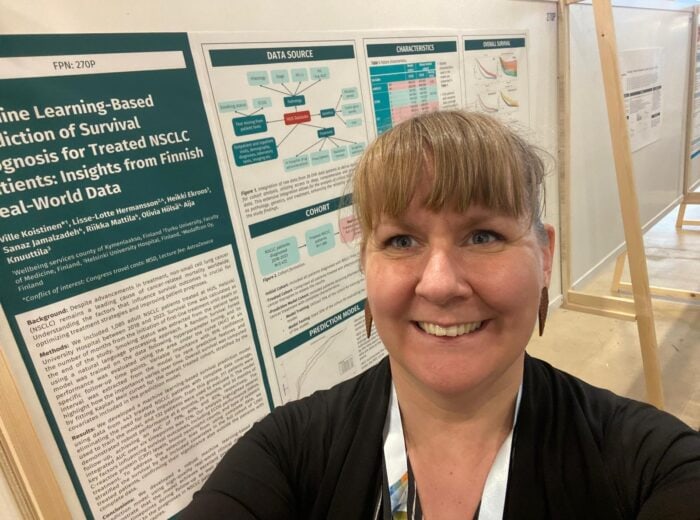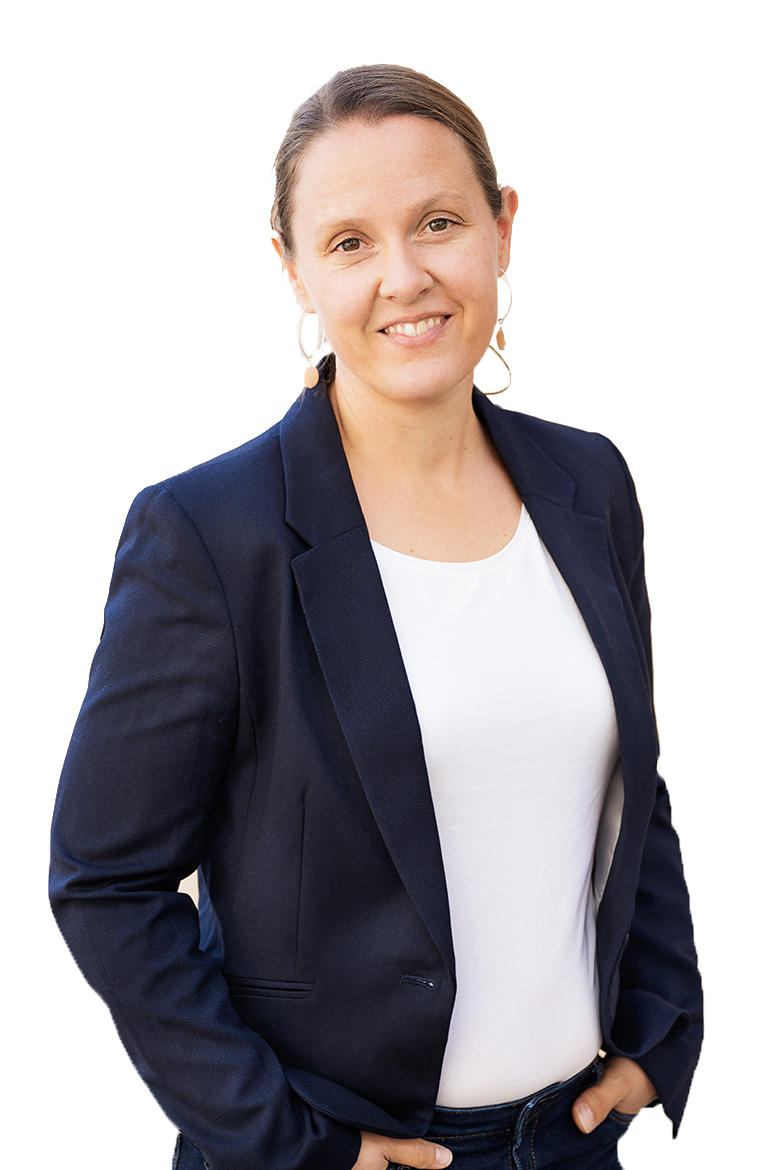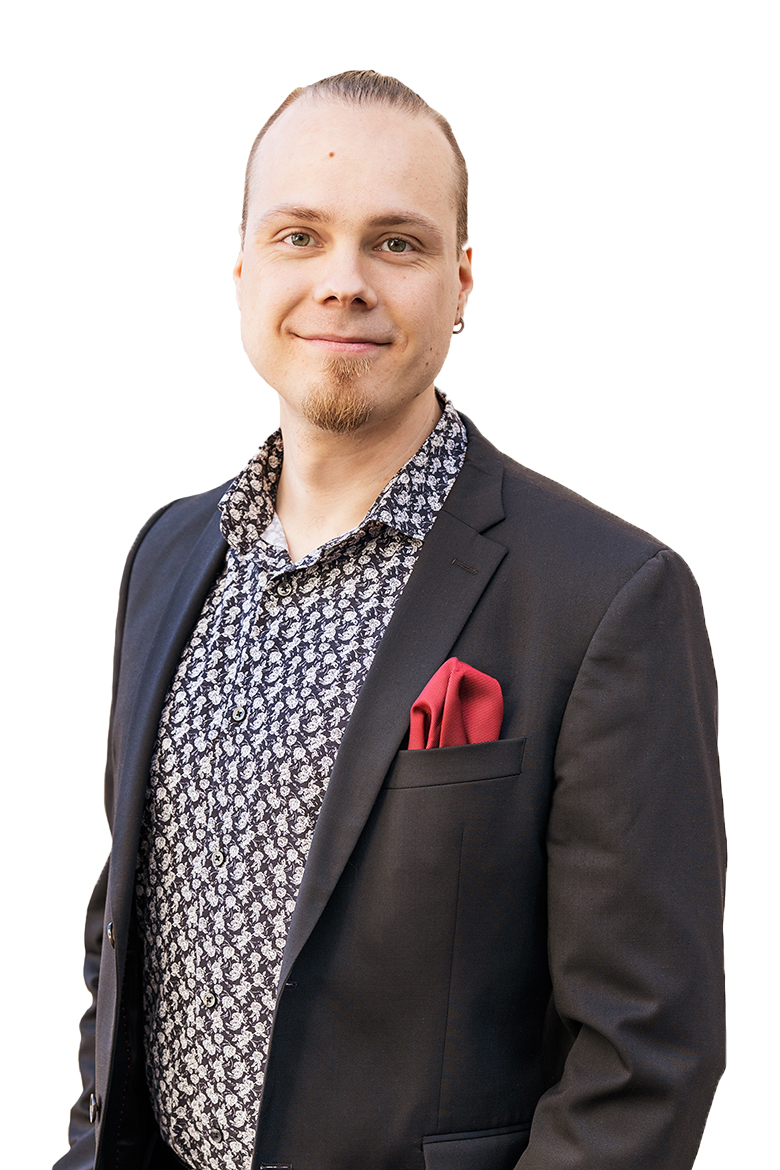Medaffcon Presented Insights from Finnish Real-World Data at European Lung Cancer Congress
Medaffcon's European Lung Cancer Congress (ELCC) poster showcased key findings from a recent study on non-small cell lung cancer (NSCLC).
Despite its high-risk nature and availability of kidney treatments, chronic kidney disease (CKD) often goes undiagnosed. This especially concerns patients without type 2 diabetes (T2D), who represent the majority of CKD patients. This finding comes from a recent registry study published in Nephrology Dialysis Transplantation (NDT).
CKD is a common condition in Finland, similar to T2D. The study highlights an urgent need to improve awareness and enhance risk management for CKD patients, particularly those without T2D.
The research was sponsored by pharmaceutical company AstraZeneca and involved Medaffcon experts, including Data Analysis Lead Iiro Toppila and Senior Scientific Advisor Kristiina Uusi-Rauva.
The study included primary healthcare patients from the Central Uusimaa Wellbeing Services County (Keusote) municipalities of Hyvinkää, Järvenpää, Mäntsälä, and Pornainen, as well as the city of Turku. Patients were identified based on a CKD diagnosis or their estimated glomerular filtration rate (eGFR), a key measure of kidney function assessing how well the kidneys filter blood.
“Since it was known that more patients existed beyond those already identified, additional patients were selected based on their eGFR values. Efforts were made to identify patients either through diagnosis or laboratory values,” explains Uusi-Rauva.
The impact of these study findings suggests that more efforts are needed in Finland to enhance CKD identification, with increased focus on albuminuria screening, and management, and improve the use of kidney treatments.
National Current Care Guidelines in Finland recommend annual monitoring for patients with diabetes and CKD, while hypertensive patients should be monitored every 1–2 years. Following a CKD diagnosis, monitoring should occur at least once a year.
“While regular assessment of kidney function is recommended, it isn’t performed as frequently as it should be,” notes Uusi-Rauva.
It is known that too few patients with T2D receive regular monitoring, but insufficient data exist on the monitoring of CKD patients without diabetes or those at risk of CKD.
“It is well-known that many patients remain undiagnosed,” adds Uusi-Rauva.
CKD is one of the most common non-communicable diseases globally, posing a significant burden on healthcare systems. It is estimated to affect one in ten people worldwide.
The prevalence of CKD and its complications is expected to rise with aging populations. Key risk factors include diabetes, hypertension, and cardiovascular diseases.
Characteristics, treatment and disease burden among stage 3–4 chronic kidney disease patients with and without type 2 diabetes in Finland during 2016–2022. Metsärinne K, Bodegård J, Toppila I, Uusi-Rauva K, Elmerdahl Frederiksen L, Brinkmann S. NDT (2024).
Find more RWE study summaries here.
Medaffcon, founded in 2009, is a Nordic research and consulting company specializing in Real-World Evidence, Medical Affairs, and Market Access. With offices in Stockholm, Sweden, and Espoo, Finland, we provide expert services across the Nordic region. Our services combine strong medical and health economic expertise with modern data science.
The company employs some 30 experts. Since 2017, Medaffcon has been a subsidiary of Tamro Oyj and is part of the PHOENIX group, which is a leading provider of healthcare services in Europe.

Medaffcon's European Lung Cancer Congress (ELCC) poster showcased key findings from a recent study on non-small cell lung cancer (NSCLC).

Johan Rehnberg started working as a Scientific Advisor at Medaffcon’s Swedish office in August 2024. He is a dynamic researcher who values opportunities to learn new things and develop his skills – opportunities that Medaffcon provides.

The algorithm was originally developed to extract smoking status from patient texts with purpose to analyze the effects of smoking on postoperative complications. Today, it is also being utilized in lung cancer research.

Sr. Scientific Advisor
RWE Lead
PhD
+358 50 345 2393
mariann.lassenius@medaffcon.com
Mariann joined Medaffcon’s team in 2016 after finishing her PhD. The transition to real world evidence (RWE) research was a natural continuum to her previous research career. Through RWE studies, she has had the privilege to gain a broad insight into working with different stakeholders within the healthcare field. The vast proportion of her days goes towards interacting with clients, planning and performing RWE studies, and supporting Medaffcon’s RWE team. Subjects that keep her work interesting are the vast variability of customers and projects, problem-solving, and interacting with people.
“The number of RWE studies has increased since stakeholders within the healthcare industry have an increasing demand for knowledge-based decision making tools that need to be fulfilled. The future, therefore, has an ever-increasing emphasis on RWE”.

Biostatistician
Data Analysis Lead
MSc (Tech.)
+358 44 314 1597
iiro.toppila@medaffcon.com
Iiro joined Medaffcon in March 2017 as a Biostatistician. For the preceding four years, he has worked as a research assistant in an academic study group, analyzing clinical and genetic patient data. Iiro holds a Master of Science degree in Technology in Bioinformation Technology.
Iiro’s strengths include his strong expertise in statistics and data-analysis, hands-on experience in working with sensitive patient data, and strong interdisciplinary communication skills with experts from various fields. In the field, he is particularly interested in the large data amounts made available with the revolution of technology and how the information received such data can potentially be utilized to draw concrete conclusions, both in order to understand the nature of diseases and to advance the goals of the pharmaceutical industry and patient treatment.
“Machine learning and AI-based solutions will have a major impact on the healthcare sector now and in the future. However, effectively utilizing the already collected and available health-data will have a higher importance in order to improve health-care”.